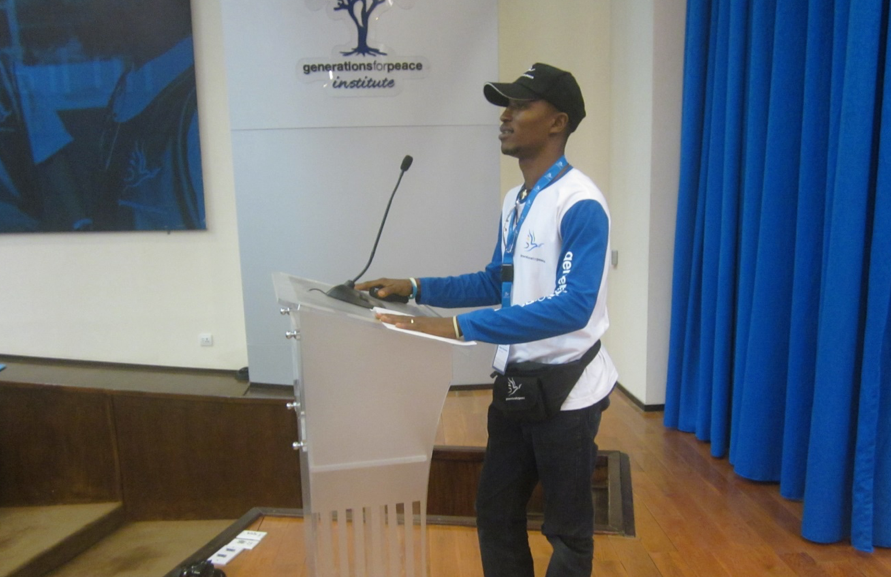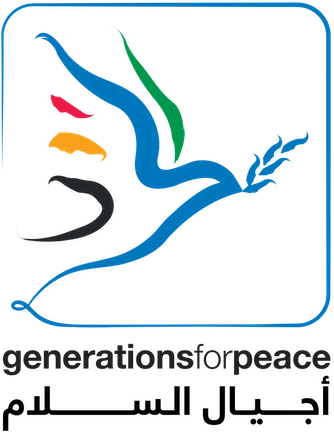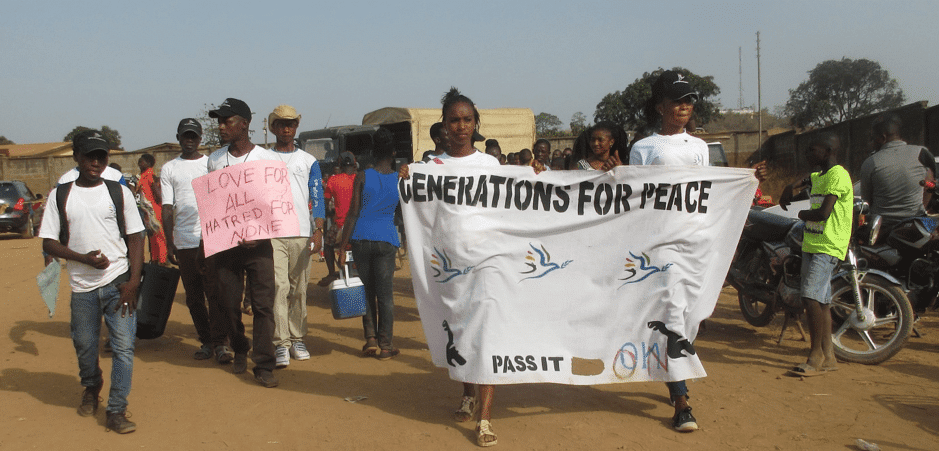By Chris Todd, Communications Officer at Generations For Peace
The walls of the tiny cell shook as grenades exploded outside the confines of the local police station where Alpha and his family hid for the better part of two days. It was April 2, 1994.
24 hours earlier, at 6pm on April 1, the small township of Masingbi in the centre of Sierra Leone fell under rebel attack. Alpha fled his home with his sisters and parents, watching people around them drop as the bullets hit them, taking their lives in the blink of an eye, or worse, leaving them to suffer as the attack was carried out.
He was 10 years old at the time.
For days, Alpha, his family, and the few others who had managed to take refuge with them in the jail cell peered cautiously through the windows or cracks in the door between explosions, only to see members of their community lying dead or being raped or captured. Alpha did not know at the time that one day, he would join the ranks of those kidnapped by the rebels.

Alpha has come a long way from hiding from rebel forces. Here he is speaking at a GFP event, sharing insight about building peace with youth
On the third day of the attack, government military forces began to overtake the rebels, leading to Alpha’s rescue and his family relocation to Makeni, the largest city in the northern province of Sierra Leone, where the rebels’ influence and violence had not yet reached. There, he and his family were placed in an overcrowded refugee camp, in which shelter, food, education, and medication were incredibly difficult to come by. But, for almost two years, Alpha knew peace, at least in terms of militant action.
After a month of living in the camp, a friend of Alpha’s father who lived nearby offered to house the family, including Alpha, who was struggling with psychological challenges stemming from his survival of the first rebel attack a few years earlier. Despite the violence that ensued from the election of President Ahmad Tejjan Kabah in 1996, Alpha and his family, as well as their generous landlord, lived in peace until 1998, when everything took an abrupt turn.
A few months before the attack, panic began to rise in Makeni. Alpha’s mother and sisters managed to escape to Freetown, Sierra Leone’s capital, before the eruption of violence took place in Makeni. Alpha and his father were not so lucky.
With sleep hindered by constant fear of attack, Alpha and his father remained in the home of their friend, awaiting an opportunity to make a move to join the rest of their family 200 km to the west in the coastal capital. However, it would be four years before they were all reunited.
One morning, the rebels that had been ramping up attacks on the town throughout 1998 broke into Alpha’s house. He watched as his father was beaten, stripped naked, and left battered on the floor of what had become their home over the past three years. That was when he was kidnapped, taken from his father and forced to return to the refugee camp, which had since been taken over by the rebel forces and turned into an arms and ammunition centre.
To this day, he still doesn’t know how long he was there. It could have been a few months or even over a year. Those who had been kidnapped – mostly young men like himself – were forced to participate in the looting, killing, and bombing carried out by the rebels. Young and traumatised, Alpha knew his only hope for survival was escape.
One night, while patrolling the surrounding grounds of the arms and ammunition centre, Alpha took his chance. Before he knew what he was doing, he had dropped his weapon and was running for the city, toward the only place he knew: the home in which he had spent over three years after leaving the camp the first time in 1994.
Ducking through alleys, taking every possible form of cover, Alpha made it to his home, immediately escaping with his father, who had not known what to do other than hope and wait for the return of his son, to one of the nearby villages yet untouched by the rebels. There, they waited out the war, remaining hidden until they were able to reunite with his mother and sisters in Freetown when the war ended in 2002.
Back together with his family and trying to overcome the trauma that the attacks and his kidnapping had thrust him into, Alpha returned to school, involving himself in as many activities as possible to keep himself busy, distracted, and equipped for whatever might come. This is where he first began to take an interest in volunteerism, joining the National Corps of Volunteerism, working with the Ministry of Youth and Sports, as well as Student Partnership Worldwide. Through these programmes, he was sent to volunteer in one of Sierra Leone’s more remote villages for 9 months, during which time his passion for volunteering and community involvement only grew.
Alpha was then introduced to Generations For Peace through an internship with the Ministry of Youth and Sport following his volunteering stint in rural Sierra Leone. It was 2008 when he was first invited to the Amman Camp in Jordan, where he learned how to scale the impact of his passion for volunteering by leading others who could cascade his passion and knowledge, creating a sustainable ripple effect that could affect not just local communities, but generations of young people throughout them.
Though he did not have the immediate means to organise an entire programme through Generations For Peace on his own, he began taking one step at a time, mobilising youth in Kabala, a town in northern Sierra Leone just south of the border of Guinea where he had moved to in 2007.

Students involved in CYAA advocate non-violence in Sierra Leone
As time progressed and Alpha continued to learn more about the scope of impact he could have in the communities in which he dedicated his time and efforts, he and his colleagues formed the Centre for Youth Advocacy and Assistance (CYAA), created by like-minded youth who sought to volunteer wherever they were needed, however they were needed. From cleaning neighbourhoods to leading informational sessions on schools about the dangers of drugs, the importance of leadership, and more, CYAA consistently grew until it had the capacity to form Peace for Development clubs in schools across the community. This, then, freed them up to begin entering the ghettos and areas of the city where students still did not have access to proper education and academic opportunities.
Since launching CYAA, Alpha has continued to be deeply involved with Generations For Peace, working with the organisation to target aggressive behaviour between youth in two secondary schools. Implementing a Sport For Peace Programme to combat the violent conflict that was often started by competitive athleticism outside of a peace-focused context, Alpha continued to see how his own efforts could impact a growing circle of youth in his city. As the programme has continued to leave its mark on the community, the sports field, which was once a place of violence and conflict has become a hub for acceptance and peace.
“I am now not only learning peace…I am practicing it.” This is what one of the many Participants of the programme has taken away from it. And this is what continues to motivate Alpha’s seemingly endless drive to transform the conflict that once left him in a state of seemingly hopeless trauma. Now, he not only sees a brighter hope for the future – he has helped shape it.
Sign up for our e-newsletter to learn more about the impact of our programmes in the Middle East, Africa, Asia, and Europe.



If we can have more of this people that believe what their goals stand for we will have enteral peace in our inner self Let stand for what we believe in order to be what we want our self to be as the saying goes be the Change you want to see .